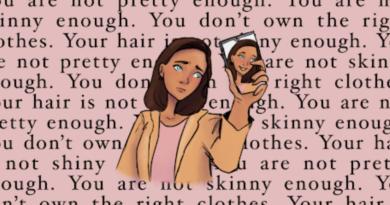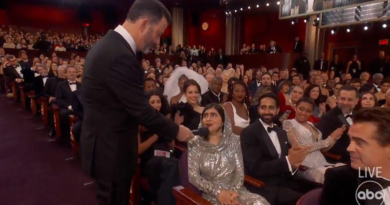Is TikTok a Risk to National Security?
All You Need to Know About the TikTok Ban
By Kayla Jovel, Staff Writer
The U.S. Congress is moving towards a nationwide ban on the popular app TikTok due to China’s alleged involvement in accessing American users’ data.
TikTok and its CEO are under fire this month, possibly having to sell TikTok’s or having its platform banned from operating on U.S. soil. This has stemmed from multiple allegations that have yet to be confirmed, involving TikTok being a risk to national security as its parent company, ByteDance, is based in China and concerns have arisen about Chinese laws regarding user data storage, TikTok data harvesting, the spread of misinformation and safety for minors.
This means that TikTok is on the edge of being banned because it is allegedly doing exactly what other social media companies like Meta already do: collecting large amounts of personal information without the user’s knowledge and spreading misinformation to its users. Because TikTok’s parent company is based in China, the congressional committee worries that the “Chinese Communist Party are spying on Americans, manipulating our algorithm, and could exploit to future generations.”
To understand this further, we need to look at why government officials are worried. Although ByteDance does not operate in China, it must follow Chinese law. In China, there are regulations that require companies to give the government personal data concerning the country’s national security — in this case, TikTok users’ data. With TikTok being home to 150 million American users, the U.S. is poised to do something that has never been done before: Ban it.
TikTok CEO Shou Chew testified before the congressional committee on March 23 regarding the government’s concerns over TikTok’s potential national security risk due to its connection to China. The CEO expressed that “ByteDance is not an agent of China or any other country,” nor has he been in any contact nor discussed TikTok or dated any Chinese officials. And since October 2022, its new U.S. user data has been stored in Oracle, managed by a U.S. data security personnel.
“It’s all over TikTok,” said Kimberly Thompson. “I didn’t even know that TikTok was being banned. I literally saw dozens of videos of the hearing on TikTok.”
TikTok users are having a field day with the hearing, making fun of the congressional committee voicing its unprofessionalism as they show memes and ask general questions that apply to all social media companies, not just TikTok. The committee even voiced its opinion that if TikTok does get banned, they will not go to Facebook or Instagram for their content as users have built their own communities within TikTok and that banning it is a violation of their First Amendment rights.
“TikTok is the app that I use every day,” said Thompson. “I use it as a search engine instead of Google. I get my news from there. It’s the place that I go to for mostly everything. I don’t think it’s right to ban it. There’s literally more important things to worry about.”
In the midst of the chaos, Rep. Alexandra Ocasio-Cortez (D-NY), uploaded her first official TikTok discussing the potential ban. She expresses how “unprecedented” banning TikTok would be and believes it should not happen and asking if the platform is a security risk, why has Congress not received a classified briefing on the allegations.
AOC expressed that the potential banning of TikTok is not addressing the real core issue: that the U.S. does not have any significant regulation to protect its people from social media companies being able to store and use users’ data without our knowledge.
TikTok users are upset with Congress’ use of time, in trying to protect children from TikTok while they should be protecting children from other matters.
Earlier this year, another school shooting occurred in a Nashville grade school and Florida has allowed its citizens to purchase firearms without a permit. The state has also banned and censored history books and is in the process of censoring curriculum from being taught in high schools and colleges, like race theory, gender studies and ethnic studies.
“It’s a scary time right now,” said Hailey Rodriguez. “People are more worried about banning TikTok — which is the only place that has most informed me about things and has given me a place to be myself and relax — than to protect children who just want to go to school.”
There has not yet been any decision made about whether or not to ban TikTok, or when there will be a decision. What we do know is that if TikTok is banned, it will represent a first in the U.S. and could affect the lives of content creators and small businesses who use TikTok as their main platform.


Above: Student scrolling through TikTok. Photo/ The Hill.




